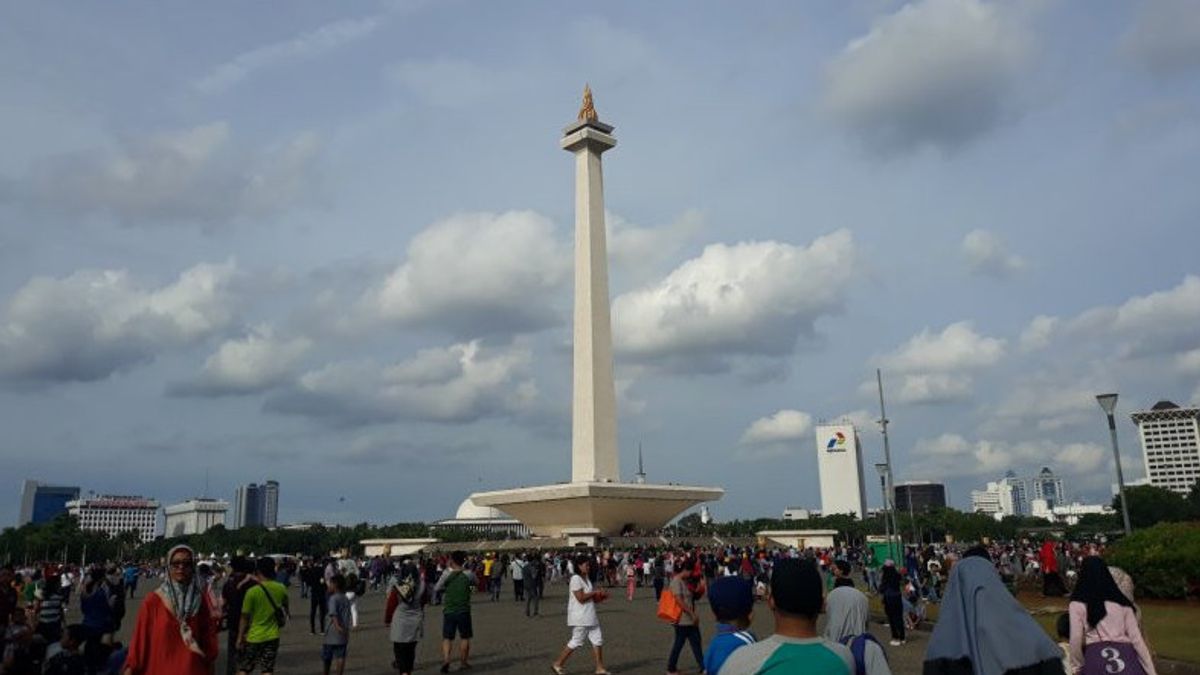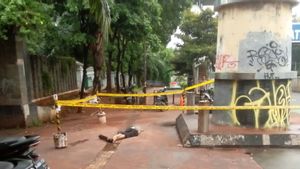JAKARTA - Member of the Legislation Body (Baleg) of the Indonesian House of Representatives from the PAN faction, Guspardi Gaus, appreciated the Minister of Home Affairs, Tito Karnavian for refusing the Governor and Deputy Governor of the Special Region of Jakarta (DKJ) to be elected by the president.
Tito stated that the change in the mechanism for choosing the governor of Jakarta does not need to be changed, namely still through regional head elections (Pilkada).
"This means that the government's attitude remains with the current regulations. Where all regional head elections are carried out through the Pilkada directly, not appointed by the president, including in the Special Region of Jakarta," said Guspardi when contacted, Friday, December 8.
Guspardi then revealed two options that developed during the discussion of the draft DKJ Bill. First, the Governor and Deputy Governor of DKJ were directly elected by the public through the Pilkada. The second option is to be appointed and dismissed by the President by taking into account the DPRD's proposal or opinion.
"However, these two options are only a proposal or initiative and have not been discussed with the government at all," said the West Sumatra electoral district PAN legislator.
The member of Commission II of the DPR explained that the draft DKJ Bill which had been ratified as a DPR initiative bill would be sent to the government.
After that the President will issue a Surpres (Presidential Letter) by appointing a minister to represent the government to discuss the DKJ Bill further between the DPR and the government.
Guspardi said that during further discussions with the government, the mechanism for selecting the Governor and Deputy Governor will be discussed in order to get the best solution which will be mutually approved by the DPR and the Government before being ratified into law.
"Indeed, there are many objections and discourse that develops if the Governor and Deputy Governor of DKJ are elected by the president, they will have the potential to become a place for Collusion, Corruption and Nepotism. And that could be a setback for democracy," said Guspardi.
Therefore, he added, the mechanism and format for the election of the Governor and Deputy Governor of DKJ through the direct Pilkada chosen by the citizens of Jakarta, really needs to be discussed and studied in depth. Because, said Guspardi, the Pilkada to determine the regional head of Jakarta has been going on for a long time and shows that the democratic process is good as a manifestation of the sovereignty of the people.
"So, the DKJ Bill is not final and can still change. Because in the process of ratifying this bill into law, the mechanism must go through a series of stages, such as discussions between the DPR and the Government to obtain mutual agreement and approval before it is enacted and ratified as the new DKJ Law," said Guspardi.
Previously, the Minister of Home Affairs (Mendagri) Tito Karnavian emphasized that the government did not agree if the regional head was appointed by the president. Tito said that his party had not received the letter from the DPR or the draft of the DKJ Bill.
Later, if it has been accepted, the President will appoint himself and the relevant ministers to discuss the DKJ Bill with the DPR.
SEE ALSO:
The government, said Tito, wants to maintain democracy. The government wants the governor of Jakarta to still be elected by the public through regional head elections (pilkada) like this.
"If we are invited, discussed in the DPR, the government position is the governor, deputy governor, elected through the people's elections, period. Not through the appointment," said Tito at Balai Kartini, Jakarta, Thursday, December 7.
The English, Chinese, Japanese, Arabic, and French versions are automatically generated by the AI. So there may still be inaccuracies in translating, please always see Indonesian as our main language. (system supported by DigitalSiber.id)


















